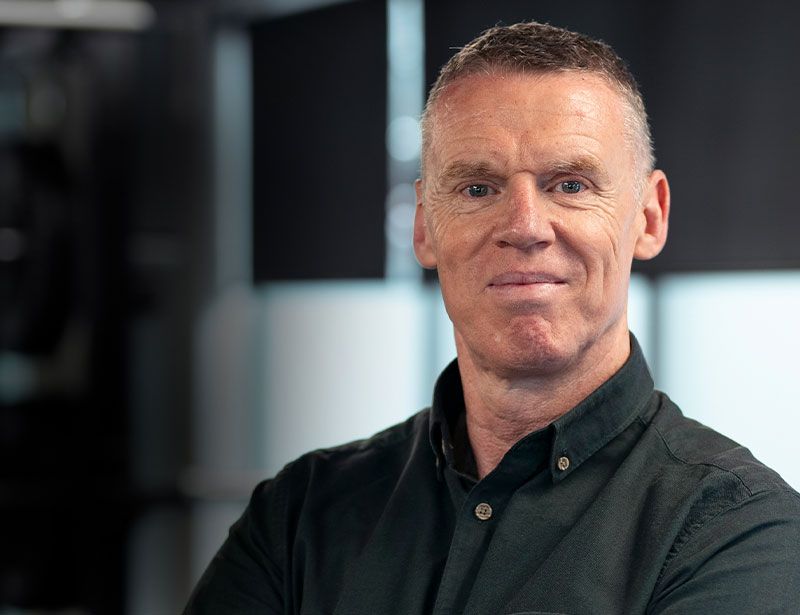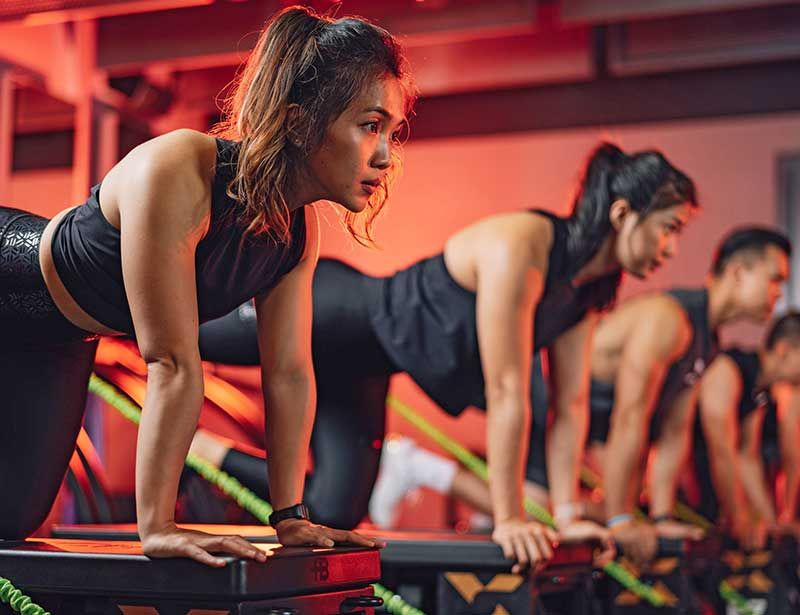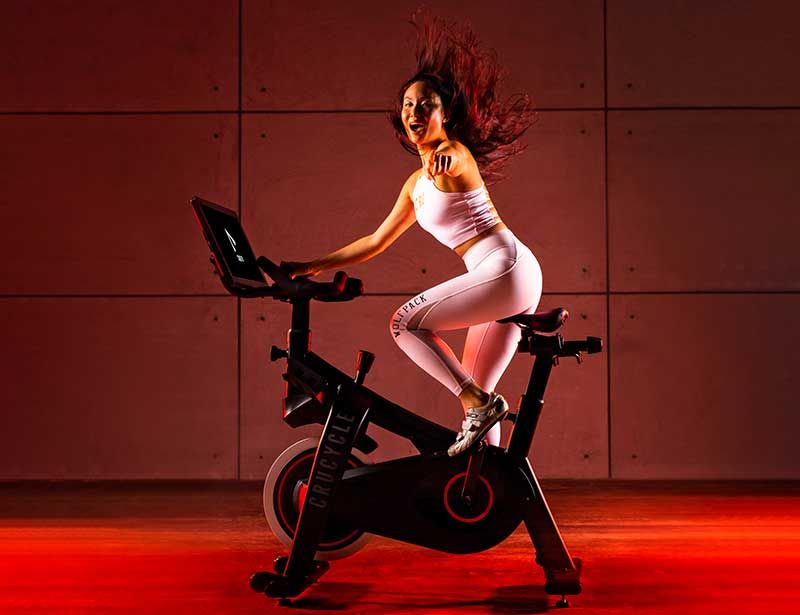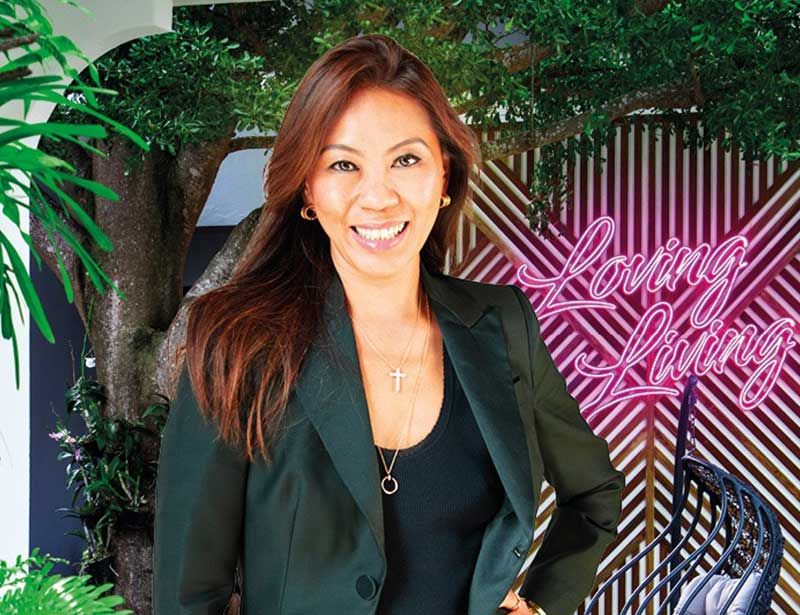Asia-Pacific
JJ Sweeney
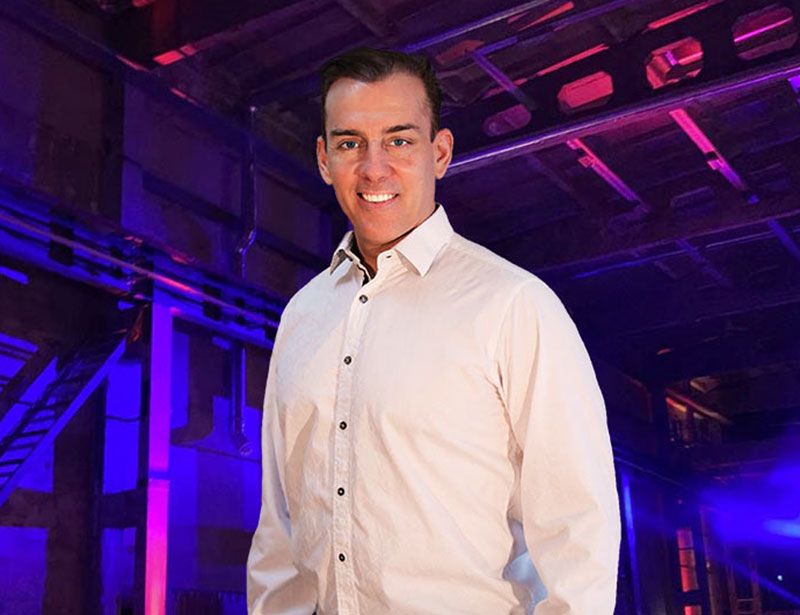
From elite trainer to co-founder of Celebrity Fitness to founder of new health club brand Paradigm, JJ Sweeney tells Kate Cracknell about his journey through fitness, and how his experiences have led to the creation of his perfect club
You were one of the co-founders of Celebrity Fitness in Asia. What was your journey up to that point?
I was always interested in fitness. When I was younger, back in Ireland where I grew up, I would take part in amateur cycling races at the weekend, cycling 150 or 200 miles.
After doing a diploma in sports science, I spent five years in New Zealand, training top athletes including Annelise Coberger, who won silver in the slalom in the 1992 Winter Olympics. I left New Zealand in 1994 and spent five years in Japan, managing Hilton Hotels’ health clubs across the country, followed by a stint in Taiwan working with California Fitness.
That’s where I met John Franklin, who along with Mike Anderson and my wife Miho were the three other co-founders of Celebrity Fitness, which we launched in Jakarta, Indonesia, in 2003.
What was the model at Celebrity Fitness?
When we set out, there were no other health club brands in the market. We really were
starting from zero. But we latched on to what people wanted – which in Asia was energy and entertainment – and we came up with a concept people had never seen before. It was Hard Rock Café meets Grand Hyatt Hotels meets Las Vegas. We wanted to take the best of all of those places, those distinct sectors, and put them into a fitness company. We wanted to create a place that felt like going on vacation for all those members who had spent the day in an office. That was the dream.
We had very cool, design-led clubs. We did lots of events and we had incredible group exercise. Our cycling studio, for example, started off as a darkened room, but it also had a fluorescent dome in the ceiling and lights in the floor, and as these lit up – combined with the great instructor and music – there was such an energy in the room. I used to love instructing myself, seeing people’s reactions as the class went on.
What were the key milestones for the brand?
Having launched the first club in 2003, we opened 16 clubs in the space of four years. At the end of 2007, we were acquired by Kuala Lumpur-based Navas Capital, who were very keen to see the brand expand.
We subsequently moved into India and Turkey, but things didn’t go our way there, so ultimately those clubs were sold off. We regrouped and instead focused our growth on the markets we were already in: Indonesia, where we grew to around 37 clubs in 12 cities; and Malaysia, predominantly Kuala Lumpur, where we got up to about 22 clubs. We also opened five clubs in Singapore.
But then things changed again in June 2017, when Celebrity Fitness merged with Fitness First Asia. The Singapore clubs were rebranded as Fitness First and a few clubs were closed in Indonesia. I only stayed with the business for six months following the merger.
What were your key learnings from your time at Celebrity Fitness?
The brand started out being really cool, really design-led, but as it grew to multiple sites in multiple countries that character was toned down. We had new people in the senior management team – that’s inevitable when you expand beyond a certain point – and in the process, the dream we had had as co-founders became somewhat diluted. There seemed to be less creativity. It felt like a number of different concepts and visions were being pushed together and I didn’t feel it worked.
So, while I wouldn’t change a thing about what we did as co-founders, my key learning would definitely be not to expand as fast as we did. It would be to spend more time building really strong foundations, training and developing staff and not pushing them into management roles before they were ready.
As new clubs opnened, they didn’t ‘copy and paste’ as i woud have liked. that impacts the member experience.
I recognise that, if we hadn’t grown fast, another brand would have come in and seized that opportunity, but it did feel a bit out of control at times. As new clubs opened, they didn’t ‘copy and paste’ in the way I would have liked them to, and of course that impacts the member experience.
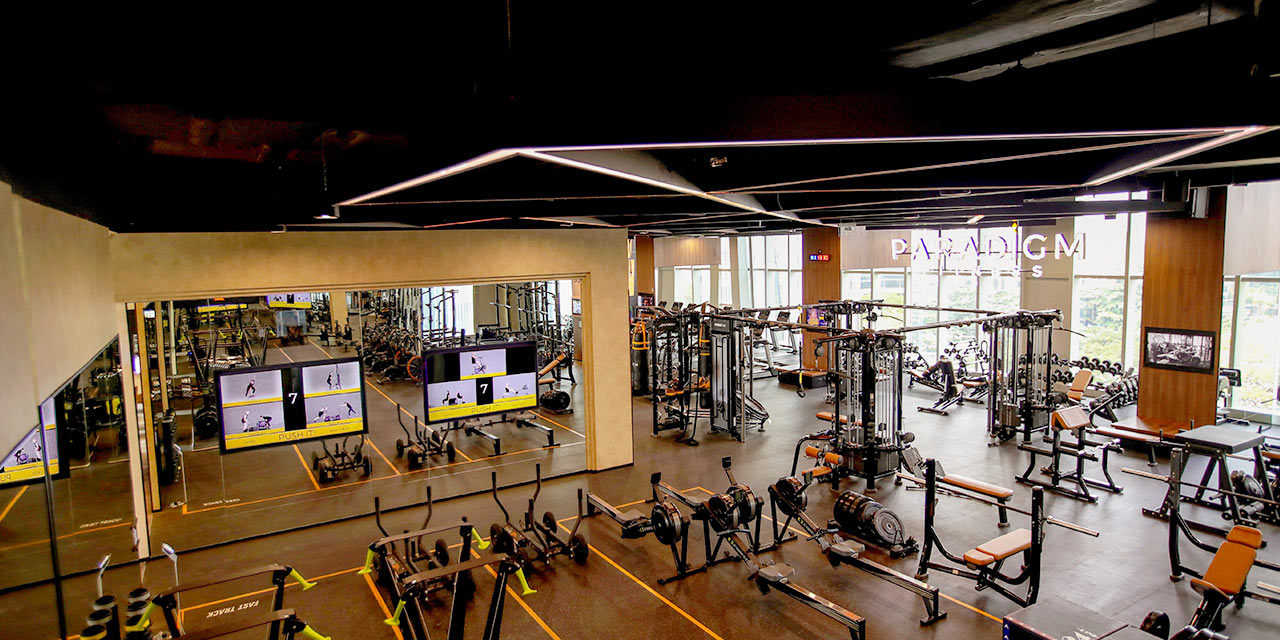
You’ve now founded a new health club brand: Paradigm. Please tell us more.
Paradigm opened in Jakarta in February 2019 and what we’ve created is a genuinely new and unique concept. I honestly believe, if it were to open in New York, London, Tokyo, it would be THE place to go. I spent a year and a half planning it, unable to sleep for thinking through all the detail. I’ve done everything exactly as I wanted to.
Design-wise, when you walk in, the reception and lounge are like a six-star hotel. The changing rooms are stunning, with wooden floors and marbled bathrooms. The gym is raw and functional – a powerful contrast to the reception area. And then there are the studios, which have a real wow factor: we have a beautiful cycling studio; a 300sq m group exercise studio with space for 120 people in a dance class; and an intimate mind-body studio with space for maximum of 16 people. And then the whole club is surrounded by floor to ceiling windows, so you almost feel as though you’re outdoors – the views are incredible.
We’ve also chosen to be in the first LEED Platinum building in Indonesia, where everything has to be energy-saving and environment-friendly, to the point of them checking any materials we wanted to use in the build.
paradigm is all about mind, body and spirit. a lot of operators talk about this, but few actually do it. we do.
Equally important at Paradigm is our holistic ethos: we’re all about mind, body and spirit. A lot of operators talk about this, but I believe few actually do it. We do.
One great example is our Soundbath class, which we run every day at lunchtime to help people de-stress and recharge. We’re located in Jakarta’s CBD (central business district), surrounded by offices, so there’s huge demand for this service. You don’t even have to change into gym kit. You just go into the mind-body studio, lay down on comfortable blankets, put on an eye pillow and we play special healing music that creates vibrations through your body. You start to see colours: you’ll see yellow if you’re in a creative state, blue if you’re in a dreamlike state… It’s a wonderful class.
We also run other mind-body classes such as yoga, mobility, barefoot, meditation, SMR (self-myofascial release). We’re finding a lot of people are joining us just for these, and even those who are into their weights and high-intensity work are loving the scope we offer for active recovery too. The way I explain it, exercise is important, but ‘inner-cise’ is just as important.
when i left celebrity fitness, people wanted to follow me. i hand-picked those i considered to be true superstars.
We have around 90 group classes a week and we encourage everyone to take part; around 70 per cent of our members do. It helps, of course, that we have exceptional instructors. When I left Celebrity Fitness, a lot of people wanted to follow me, but you can’t take everyone. I hand-picked the best of the best – the people I considered to be true superstars.
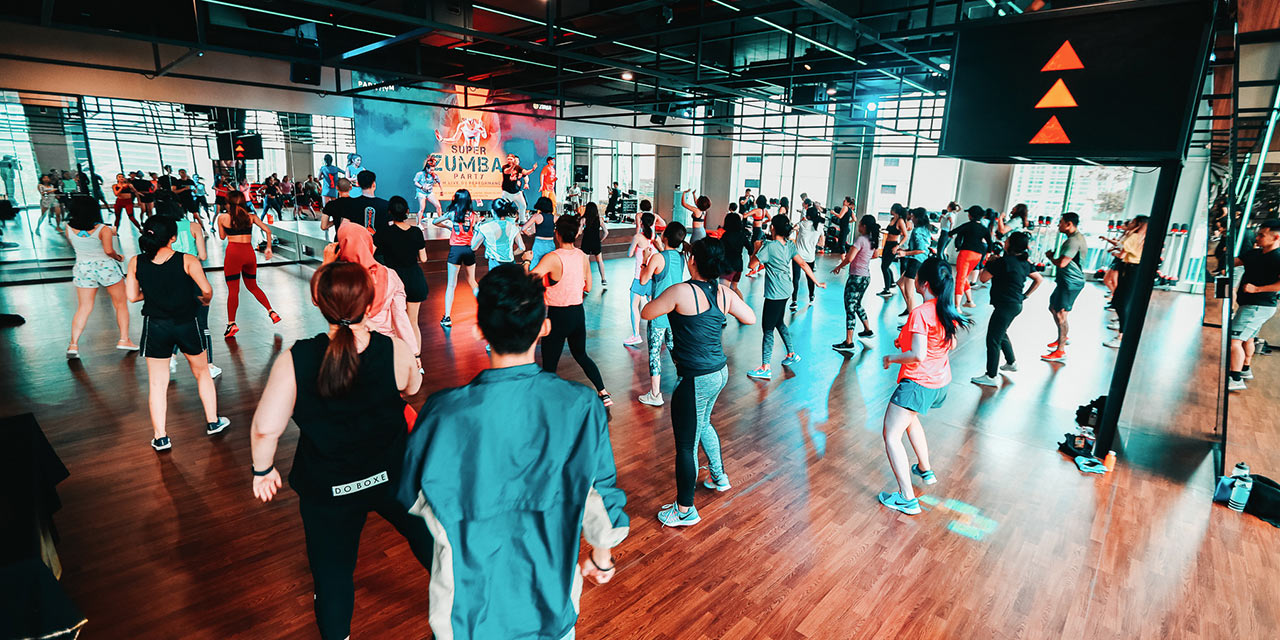
Tell us a bit more about the fitness spaces at Paradigm.
The gym floor is split into five zones. The first is Fast Track, which does host some live classes as well as DJ nights two or three times a week, but its primary offering is virtual classes, which you can do on the hour, every hour. We create this virtual content ourselves.
The rest of the gym space is very raw, with no traditional strength equipment – it’s all about standing up, about movement. There’s a Free Weights zone, a Cardio zone, a Kettlebell zone and a Calisthenics zone. This Calisthenics zone features the sort of equipment you’d often find on a beach, with bars and Olympic rings and so on, but we decided to bring it indoors. We have 7m-high ceilings, so we have the space to do aerial stuff, and in fact we’ve combined this with a climbing wall and peg boards that go up 5 metres.
We also worked with Life Fitness to create the first four-pillar cable machine in the world, which is nicknamed The Beast and which sits alongside equipment like power racks, benches, free weights, the Nautilus glute drive… and lots of open space.
Sound is really important to us. Throughout the whole gym floor space, we have 16 sub-woofers. It means you don’t just hear the music – you feel it. It feels like the music is really pumping, but without having to crank up the volume to a point where you can’t hear each other speak.
Then we have our studios. The largest one has a 6m x 3.5m LED screen at the front, on which we project imagery and video to enhance each class and create an immersive environment. Our cycle studio is a really cool space too, with fantastic lighting, a 3m x 3.5m LED screen showing MyRide video footage from around the world, and an exceptional sound system – it has two sub-woofers of its own, just in the studio, so you feel the music but can still hear the instructor very clearly.
The way we describe it: as a 2,000sq m site, Paradigm is a big-box boutique.
Tell us a bit more about your cycling classes.
I’m not a huge fan of all these ‘party on a bike’ classes. Yes, it’s fun and the music might inspire you, but my view is that you get better results if you’re really focused on what you’re doing, if you’re really aware of your body.
I therefore like to teach indoor cycling as if it were road cycling. I like to teach people how to climb and race in the right way, how to engage their whole body: legs, core, upper body. I like to focus on the movement, on technique. Because if you do all this, you’ll burn more calories and get better results.
That’s our approach at Paradigm. We use ICG’s Coach by Colour system for all our classes, where you train in colour-coded zones: we currently offer a 50-minute Colours class and a 30-minute Performance class, and I’m working on two more formats which we’ll launch soon.
Performance is about 25 per cent harder than Colours – you’ll cycle about 12km in the 30 minutes, compared to about 17km in 50 minutes in Colours. In each class, the structure is set – the order of the coloured zones you go through, culminating in a team competition at the end – but the instructor is free to do his or her own choreography. The colour zones are all we dictate.
Interestingly, where at Celebrity Fitness the cycling was all about motivation and
excitement – the instructors really had to be performers – at Paradigm the member
mindset is proving to be different. The members are very focused and are more interested in the data, in their results, in the instructor getting them through a good workout and helping them stay focused. It’s perhaps down to our location in the CBD, which means we have a lot of competitive high-fliers among our members – we have over 30 CEOs, for example – but they’re more interested in getting results than in being entertained.
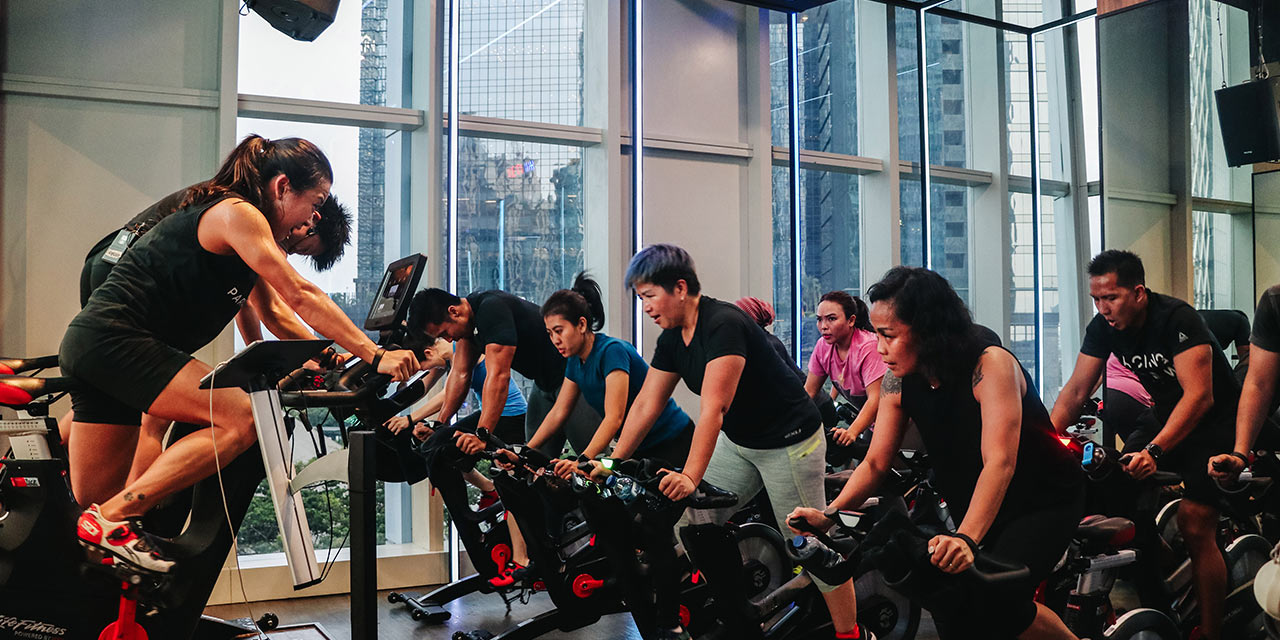
You refer to Paradigm as a luxury fashion brand. What do you mean by this?
When people get into fitness, over time their body changes shape – but the way they feel also changes. The way they act, their attitude, their self-confidence, the clothes they choose… their whole body language changes. That’s why I see fitness as fashion. We help people fall in love not only with fitness, but also with themselves and with fashion.
By offering all of that within a unique, premium space, we’re also finding others are seeing us as a fashion brand. We’re collaborating not only by the usual sportswear brands, but with the likes of Calvin Klein, Estée Lauder, Guess. For example, Calvin Klein recently organised an event for 300 people at Paradigm, as well as a pop-up store in front of the club. People are seeing us as a fashion brand and we’ve gone viral.
How has Paradigm performed so far, and what are your expansion plans?
It’s going very well so far. We’re currently at 900 members [as at October 2019] and I’d like to get to 1,600, but break-even would be around 1,100. Membership costs around US$80 a month, up to US$350 to include 10 PT sessions. That makes our price point twice as much as Celebrity Fitness, for example, so we don’t need to have thousands of members.
Going forward, I only want to open three or four Paradigms in total, all in Jakarta. I want to keep it exclusive, to create a tight-knit community, to keep standards really high. I want it to be a place where members spend time, and where I can take the time to be on the gym floor engaging with them, teaching them new techniques to help them get results.
I’m therefore not in a hurry to open our second club. The space has to be perfect. We want the high ceilings and the windows. I’ve looked at a few places but they weren’t right – but interestingly, I’m now finding myself being approached by developers who are actively asking me what they want so they can build it for me.
What we will definitely do in 2020 is launch the Indonesian Fitness Academy. I’m concerned by all the influencers on social media who are persuading people to follow them and their advice, but without it being based on any real knowledge or certification – nothing more than their own personal experience. Everyone’s needs are different; to get the best results, you need expert advice and a personalised training approach.
influencers on social media are persuading people to follow them, but without any real knowledge or certification.
We already spend a lot of time educating both members and our staff to address the
misconceptions they’ve picked up from social media, but I now want to do even more to ensure instructors have an in-depth understanding of the human body, and of how to train different types of people.
It is only by doing this – by helping members get results – that we can really get them to fall in love with fitness.

Conceived, powered and funded by BODY BIKE®, RIDE HIGH has a simple mission: to celebrate and champion the very best of indoor cycling, sharing ideas, stories and experiences from around the world to inspire the sector on to even bigger and better things. Subscribe for free by leaving your details below and we'll send indoor cycling's hottest news direct to your inbox three times a year.

